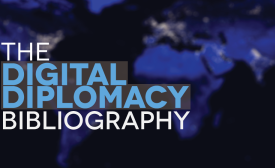public diplomacy
If this sounds like a national campaign, that's because it is. The South Korean government has made the Korean Wave the nation's No. 1 priority. Korea has multiple 5 year plans, the likes of which most democratic and capitalist countries have never seen. The government felt that spreading Korean culture worldwide was dependent on Internet ubiquity, so they subsidized Internet access for the poor, the elderly, and the disabled.
The museum has “a very broad ambition in terms of programming and our audience,” says director Henry Kim. It aims to introduce the art, material culture and performing arts of Islamic civilizations – with artifacts largely from the Aga Khan’s family collections, spanning more than 1,000 years of history from Europe to India, and from manuscripts to contemporary dance.
Successful countries of the 21st century will be those that are skillful at public diplomacy, cultural politics, and alliance-building. In the past, because of our military power, we have not had to develop those skills. We will have to learn them if we hope to project power in the future.
Cultural diplomacy can help challenge misconceptions and reconcile differences that underlie conflicts. Although its potential has thus far been ignored in the Israeli-Palestinian conflict, the time is ripe to experiment with additional diplomatic tools. Diplomacy comes in two tracks.
Torontonians will naturally be focussing on local issues like transit and taxes and when they go to the polls in October. But we should also spend some time thinking about how the candidates stack up when it comes to municipal diplomacy, the ability to make smart connections for Toronto in the wider world.
Columbia University Senior Fellow Alec Ross discusses how social media has helped drive the public conversation and engage people in foreign affairs. He speaks on ‘Market Makers.”
"A Panel Discussion on Digital Diplomacy Hosted by the U.S. Foreign Press Center." (2014).
ABOUT: Assistant Secretary for the Bureau of Educational and Cultural Affairs Evan Ryan, Assistant Secretary for the Bureau of Public Affairs Douglas Frantz, and Coordinator for International Information Programs Macon Phillips discuss "Digital Diplomacy."

Produced by CPD and the Netherlands Institute of International Relations, Clingendael, this is the most comprehensive bibliography of the growing practice of digital diplomacy.







